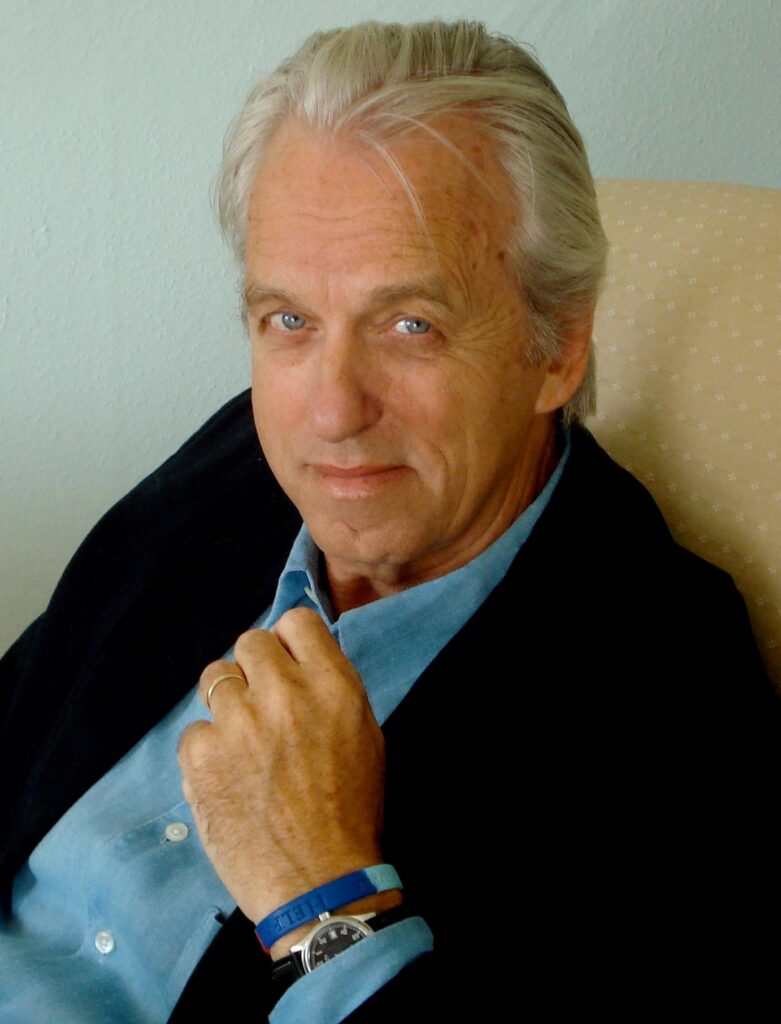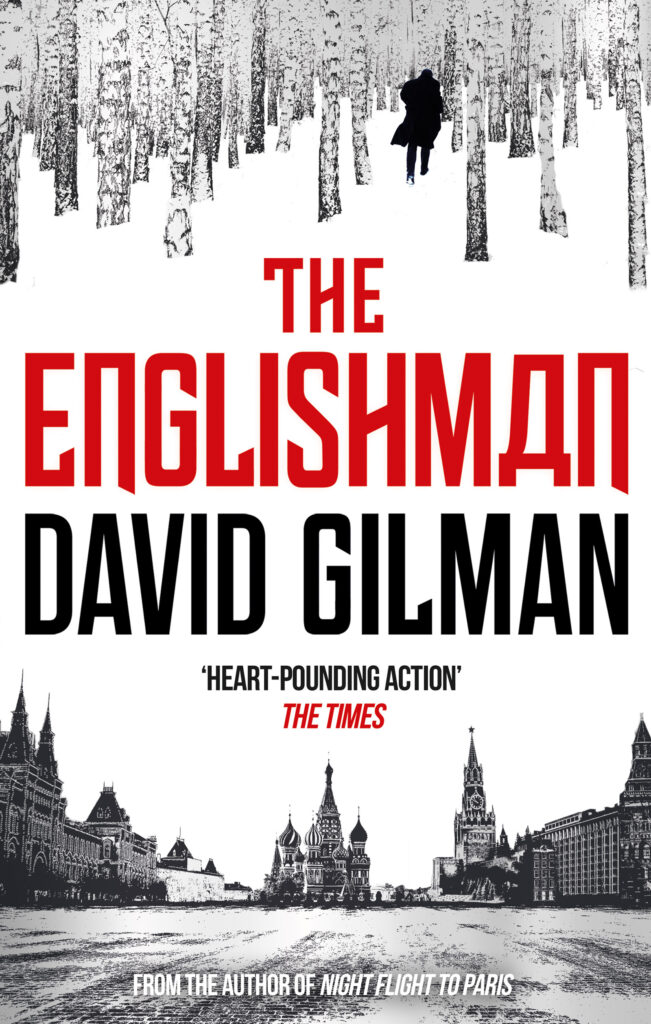I wrote my first story when I was about six years old. It was The Runaway Sixpence, written in the first person, and the sixpence got swallowed by a cow. I remember the teacher berating me in front of the class, saying how could I write from beyond the grave. Stupid woman. Obviously, she had never seen Sunset Boulevard. That put an end to my writing career there and then. But a storyteller is not someone you can keep down. My verbal storytelling skills got me out of plenty of jams and allowed me to talk my way into jobs I would never have had otherwise. I left school at 15 to support my mother and siblings. When I was a teenager, I wrote a few Battle Picture Library comic books. It was wonderful. All those ‘movies’ in my head, the visual images being described to the artist in the script, and then writing the dialogue, tight and expressive with a narrative description. Economy of scale and a lot of fun. That was abandoned when I travelled around the world and took any job I could to pay my way.
After a few adventures over the years, I ended up in South Africa working as a sales rep for an international publisher. I had hundreds of books to read – and sell – and I was good at it. So much so I ended up going to night school to study marketing and management and became a regional marketing manager for Penguin SA. But the urge to tell stories nagged away. Visual imagery was my strong suit. I had once worked as a professional photographer, so I decided that radio drama was my milieu. It is the perfect visual medium for the listener. Dialogue and sound effects creating every listener’s unique picture in their mind.
In those days there were no writing schools, no one extended a helping hand, and you could not get your hands on a script to see the layout and how to present it for love or money. It was a lockdown business. The broadcaster owned the scripts, and they had no intention of letting you see one. I stumbled on an old BBC publication, long out of date but gave a couple of pages from an example radio script. I copied the format, was forgiven a lot of sins by a producer, rewrote, learnt – and ended up writing hundreds of radio dramas and a daily soap that ran for 18 months. I did all of this late at night and every weekend while working full time. The payments were abysmal. Barely enough to buy typing paper.
But that’s where I learnt to write.
I felt confident enough to hand back the company car, quit the well-paying job and have a crack at television. I wrote several 13×60 minutes of multi-stranded drama series and 4×60 minutes mini-series.
I returned to the UK in 1995 and started from the bottom again at 48 years old. And that’s a late time to start from scratch once more. I came to realize that the stiff competition here meant producers of existing series preferred to work with writers they knew. It was all a bit of a club. I found a tv agent and wrote outlines for tv producers and a couple of television movies for the German market that did very well, but I still could get none of my scripts for tv series being picked up here. Some years previously I had met the producer for A Touch of Frost when he filmed a movie in South Africa. So six years after my arrival here The producer asked me to submit a script, (you had to be invited onto the series) it was accepted and I ended up writing A Touch of Frost for several years until Sir David Jason retired from the series.
I then had a choice. Stay in television or have a crack at writing novels. Once again I threw caution to the wind and wrote a Young Adult series called Danger Zone: The Devil’s Breath, Ice Claw, Blood Sun. The three books were published by Puffin, won a French literary award, was short and long-listed for the Carnegie Medal. I spent a lot of time travelling to schools, giving talks and attending all the major literary festivals. I decided to have a crack at adult fiction. What was it going to be? Crime fiction, which is so popular, or something fresh and challenging. I had seen a painting of an English adventurer who fought for Italy in the 14th century and not knowing anything about the period plunged in to research the period. That was how the Master of War series began. I have just finished writing the seventh book in the series, and I’m pleased to say that because of the various established characters – especially the main protagonist Thomas Blackstone – and the breadth of the storylines and the strong women characters in the books, I have a diverse readership with many women readers who are fans.
The long, hard slog of writing a series means time is at a premium. But I also wanted to write other books, and that meant writing longer hours to achieve this. A favourite is my children’s book Monkey and Me, and then I squeezed in an evocative story set in Southern Africa, The Last Horseman which was shortlisted for the Wilbur Smith Adventure Writing Award. And last year my standalone novel, Night Flight to Paris, set in France during WW11 was well received.
Now I have created a new character for a new contemporary thriller series. The first book is called The Englishman. Dan Raglan is a former Foreign Legion soldier who works quietly behind the scenes and who is a modern Paladin – a knight errant who rights the wrongs – and gets hurt along the way. Perilous journeys undertaken to help those in danger.
I write this lengthy explanation in the hope of encouraging writers starting out, and others who look at the blank page and think the journey might be too difficult. It can be a natural and daunting experience but if an uneducated, wandering storyteller like me can make it then so can others. Never give up. Let the passion and determination drive you on.
- What you are promoting now.
The Englishman. The first book in a new series.
- A bit about your process of writing.
I start in the morning and write my day’s worth – but it’s a mixed full day at my desk because of the breadth of research I do. The added hours come in when I want to write a standalone novel in between my ongoing series. That means I have to go back to my desk late at night for a few more hours.
- Do you plan or just write?
When I wrote A Touch of Frost, for example, the producers needed a synopsis or an outline so they could see where the storylines were going (there was always more than one in every episode). This was a broad brush stroke and often became embellished or diminished as the writing went on. There are writers meticulous in their planning and when it comes to the actual writing, they tend to breeze through it. I have tried that approach with my novels but abandon it. I get bored. So I just write.
- What about word count?
I have a year planner next to me and every day I mark my word count. It’s a ‘kick up the pants’ aid. I can see when I have to finish a book – I have never yet missed a deadline – and what it is going to take to finish it in time. I plan for 1500 words a day. They have to be good words. Considered and rewritten every day.
- How do you do your structure?
For books – there isn’t one. A general idea, an incident or a place that attracts me. Something that pops into my head. I write the first line and see where it takes me. If I can be entertained and surprised by the journey, then so too will my reader. There is, though, an understanding in the writing that the rhythm has to feel right. It’s a composition. And as the story builds and often changes, then the structure emerges. Plant the seeds and watch them blossom. It’s a wonder.
- What do you find hard about writing?
Everything. The long hours. The misery of self-doubt. The grappling with the jigsaw puzzle of a story without being able to see the picture on the box.
- What do you love about writing?
Everything.


